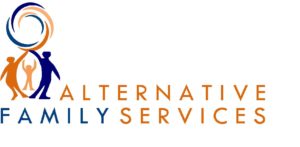Where Do You End Up Living After the Foster Care Process Ends?
Typically, most discussions around foster youth and their families center around their time in the care of Resource Parents, away from their biological parents. But what happens when they are no longer youths? Where do they go, and where do they live?
For the longest time, foster youth would “age out of the system” on their 18th birthday. As emancipated legal adults, they wouldn’t qualify as foster youth and instead would have to rely on themselves plus any social safety net services they qualify for to get by. Indeed, about half of U.S. states currently do not provide foster care services for anyone 18 years old or older.
Every year, 26,000 former foster youth become too old to receive foster care-related services nationwide. In California, it’s over 4,000 annually. And, unfortunately, the outcomes for most of this population are far from ideal:
- By the time former foster youth turn 24, they are less likely than their peers to be employed, and they earn less money overall.
- Compared to their peers, former foster youth are more likely to end up in prison.
- One in five former foster youth nationwide are homeless at 18.
- Seventy percent of female former foster youth are pregnant before their 21st birthday.
- Under 3 percent of all former foster youth go on to obtain a college degree eventually.
Helping Transition Aged Youth
While the statistics are bleak, there is hope. Thanks to new laws and programs, transition-aged foster youth have more options and additional support than ever before during this critical time in their lives.
In California, one of the biggest steps forward came in 2012, with the passing of Assembly Bill 12. The law empowers the Department of Children and Family Services to support and assist foster youth between the ages of 18 and 20, until they turn 21. AB 12 helps to ensure foster youth in California get housing and financial support for an additional three years, so long as they are studying, working or taking job training courses (or are unable to fulfill these requirements for medical reasons).
Having support for a few years beyond 18 can make a big difference in a foster youth’s life. In fact, researchers from the University of Chicago found that those who received such support beyond their 18th birthday were more like to go to college and less likely to become homeless than foster youth who didn’t receive this kind of assistance after turning 18, among other positive outcomes.
Here at AFS, we’re committed to helping foster youth at all stages. For transition-aged youth, we provide a Transitional Housing Program and Independent Living Skills Programs, among other types of support. In Marin and Solano Counties, these programs have thus far helped 50 former foster youth emancipate with housing and a life-long connection, and 42 of them are presently working, in school or both.
Statewide, former foster youth are beginning to take advantage of the services and support offered by AB12. Over half of all transition aged youth in California receive education help, while close to 40 percent get housing support and assistance of some kind.
Thanks to these efforts, among others, the rate at which foster youth “age out of the system” actually declined over the past 10 years. In particular, between 2006 and 2016, there were 45 percent fewer former foster youth ageing out of the system, with only 11 percent of all former foster youth in 2016 leaving foster care then for that reason. This means that they have more resources and support as they grow up.
Of course, while newer laws and support systems are helping, the work is never done. Here are AFS, we are committed to working with current and former foster youth and helping them achieve the very best outcomes in life. This was our goal in 1978, and it remains true to this day.
